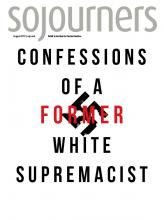THE ART OF ... book series from Graywolf Press focuses on writing craft and criticism. In each compact volume an accomplished writer takes on a single element or theme. The most recent entry in the series is The Art of Death, by Edwidge Danticat.
Danticat’s reflections on a wide variety of literature that wrestles with death—from Taiye Selasi’s debut novel, Ghana Must Go, to C.S. Lewis’ A Grief Observed—offer insights for readers as much as for writers. She explores the complicated emotional landscape of death and mourning, but also the myriad ways, tangled in questions of both justice and mercy, that death comes: accident, illness, deadly disasters, suicides, executions.
Read the Full Article

Already a subscriber? Login
